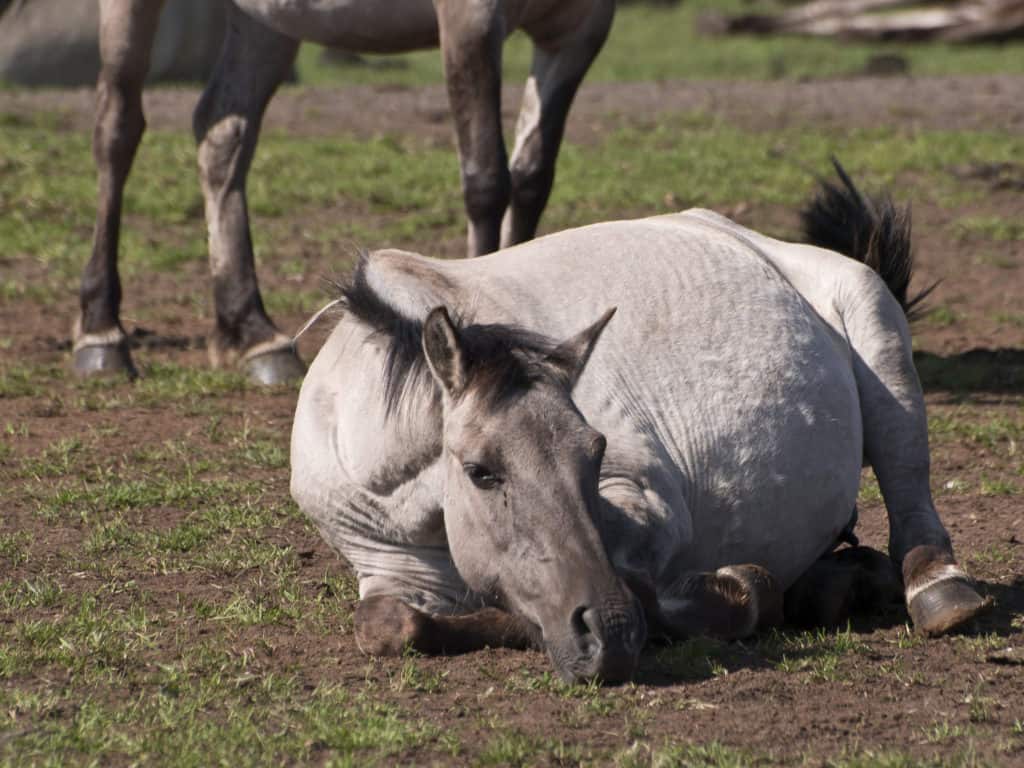
Weight Loss for Horses With Gastric Ulcers
Dr. Patty Graham-Thiers describes the safest ways to help a horse lose weight without overrestricting his forage intake and increasing his risk of gastric ulcers.

Dr. Patty Graham-Thiers describes the safest ways to help a horse lose weight without overrestricting his forage intake and increasing his risk of gastric ulcers.

Researchers in the U.K. say finances, emotion, and logistics all affect the outcome in cases of severe colic in horses.

Many conditions besides colic can cause coliclike signs. And with colic, delayed treatment or misdiagnosis can have serious consequences. Here’s what you need to know.

When faced with the decision of whether or not to send your senior horse into colic surgery, consider these factors.

Dr. Kelly Vineyard describes the best ways to help an older horse with poor dentition gain weight without putting him at risk of choke or GI problems.

Read about the do’s and don’ts of feeding horses that have 4 common health conditions, including gastric ulcers, metabolic disorders, and more.

Probiotics might help reestablish healthy balances in the horse’s gut microbiome without causing harm.

Freezing and storing fecal microbiota transplant product in saline and glycerol might maintain the most viable microbial communities for horses with intestinal problems.

One expert describes the best way to manage horses with a history of squamous and glandular ulcers and how to prevent recurrence.

Researchers investigated fecal sample analysis as a noninvasive alternative diagnostic method for IBD in horses.

Antimicrobial-resistant infections continue to challenge veterinarians and compromise horse health. Here’s what practitioners are doing to curb it and how you can help.

Researchers say a high-fiber diet can help improve the health of your horse’s gut microbiome. Here’s what you need to know.

Late in pregnancy, mares’ abdominal space is limited, and they can experience colic. Learn more in the Winter 2024 issue of The Horse.

Behavioral issues in horses often stem from underlying physical problems, requiring careful evaluation to identify and address root causes.

Colic surgery outcomes aren’t guaranteed, but acting quickly reduces risks, and mild complications occur far more frequently than serious ones, if at all.

Learn about 14 types of colic, or abdominal pain, in horses and their prognoses.
Stay on top of the most recent Horse Health news with
"*" indicates required fields